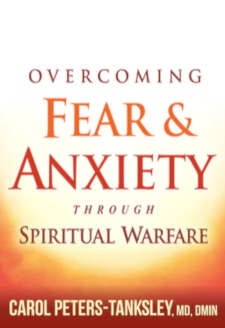Empathy Over Platitudes: 10 Pieces of Advice Anxious Christians Don’t Want to Hear
In the tapestry of faith and mental health, the threads often intertwine in intricate ways that few outside the experience can fully comprehend. When the vulnerabilities of mental health meet the convictions of Christianity, a delicate balance must be struck.
Regrettably, this equilibrium is sometimes disrupted by well-intentioned comments that inadvertently undermine the struggles of anxious Christians. As believers, we are called to offer solace and understanding rather than oversimplified advice.
Here are the 10 comments that anxious Christians are tired of hearing:
1. “Anxiety is a sin.” The misconception that anxiety is a manifestation of conscious disobedience poses a challenge for many anxious individuals. Recognizing that Jesus understands our human struggles can provide more comfort than labeling it as sin.
2. “God doesn’t give you more than you can handle.” This adage, while rooted in Scripture, can inadvertently add to the burden of those battling anxiety. Acknowledging that seeking help and utilizing medical resources is not a sign of weak faith but a responsible approach can help destigmatize mental health.
3. “Give it to God.” Although turning to God in times of anxiety is vital, this advice can oversimplify the complexity of managing mental health. Sometimes, even with faith, professional support and medication are necessary components of the healing process.
4. “Have you prayed about it?” Implying that an anxious individual’s relationship with God is somehow insufficient can intensify feelings of inadequacy. Understanding that prayer complements, not replaces, professional help is essential.
5. “You’re being punished for the sin of worrying.” This perspective wrongly attributes anxiety to personal fault. Recognizing that mental health conditions are not divine punishment but physiological realities is a significant step toward a compassionate response.
6. “Your anxiety is spiritual warfare.” While spiritual aspects can influence mental health, attributing all anxiety to spiritual warfare oversimplifies the complexity of mental health disorders. Integrating faith with professional guidance can lead to a more holistic healing journey.
7. “If Christ was really in your heart, you wouldn’t have anxiety.” This comment underestimates the intricate interplay between faith and mental health. Instead of questioning one’s faith, offering encouragement and understanding can create a supportive environment.
8. “You wouldn’t need a therapist/medication if you really trusted in God.” Recognizing the role of therapists and medication in treating mental health issues mirrors the acceptance of medical intervention for physical ailments. A well-rounded approach embraces both faith and medical support.
9. “Anxiety is selfish.” Anxiety is not a deliberate choice; it’s a complex condition. Viewing it through the lens of selfishness dismisses the reality of mental health struggles and perpetuates stigma.
10. Silence. Perhaps the most painful response is silence. In a community centered on love and understanding, the absence of dialogue surrounding mental health isolates those who need support the most. Pastors and fellow believers should strive to create an environment where these conversations can occur without judgment.
 In addressing the needs of anxious Christians, it’s essential to remember that mental health is not a direct reflection of one’s faith. Instead of offering pat solutions, embracing empathy and creating an environment of open conversation can help believers navigate the intersection of faith and mental health with compassion and understanding.
In addressing the needs of anxious Christians, it’s essential to remember that mental health is not a direct reflection of one’s faith. Instead of offering pat solutions, embracing empathy and creating an environment of open conversation can help believers navigate the intersection of faith and mental health with compassion and understanding.
By listening actively, avoiding judgment, and educating ourselves about mental health, we can offer meaningful support to our brothers and sisters who are dealing with anxiety. Ultimately, our aim should be to reflect the love and grace of Christ by standing alongside those who face mental health challenges, helping them find solace in both their faith and their journey toward healing.
In her book Overcoming Fear & Anxiety Through Spiritual Warfare, Carol Peters-Tanksley, MD, says you must identify the root of your fear and anxiety. {eoa}
Join Charisma Magazine Online to follow everything the Holy Spirit is doing around the world!
Shawn A. Akers is the online editor at Charisma Media.







































